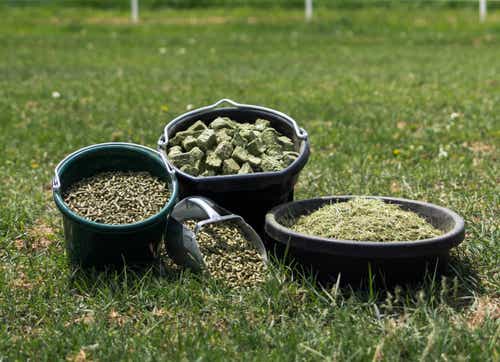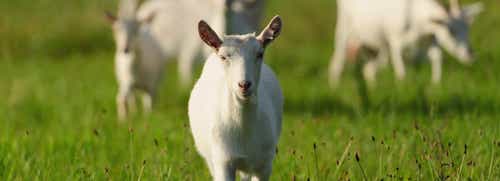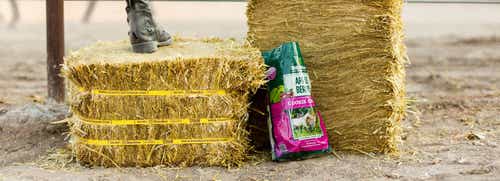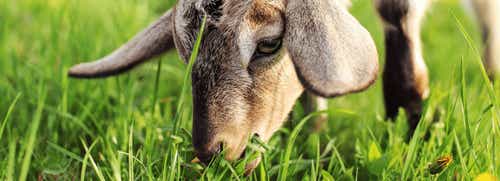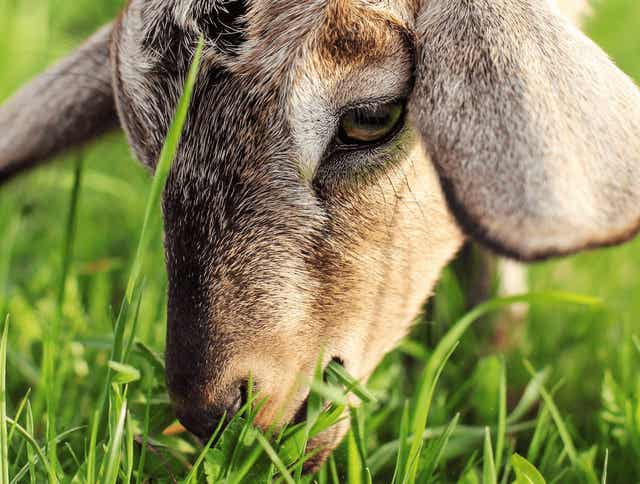
What Do My Goats Need in Their Diet to Be Healthy?
It seemed like a good idea; let’s get some goats for the children to show, which will, in turn, teach them responsibility. Then reality sets in, and you realize you don’t know that much about feeding and keeping a goat healthy. The good news is that feeding goats is not that hard if you understand the basics. Goats, like other livestock, require five essential nutrients: water, energy, protein, minerals and vitamins.
Water is the most essential of these nutrients. Goats can go days with inadequate protein or not enough minerals in their diet, but they can’t survive without water. Since the requirement for water is influenced by physiologic activity such as pregnancy, lactation and growth, the best approach is to provide goats with free-choice access to fresh clean water. Make sure all goats can reach the water source and keep it clean and filled.
The energy portion of the diet is the same as the calorie content of the diet. Simply stated, if you feed your goat too much energy or too many calories, they get fat, not enough calories and they get thin. Goats get energy from the feeds they eat. Speaking of feed, goats will eat between 3 – 5% of their body weight in dry feed per day. For a 40 pound goat, that is a feed intake of 1.2 pounds to 2 pounds per goat per day. The higher feed intakes are seen in lactating goats and young, growing goats. Pasture grass, plant leaves, grass and alfalfa long-stemmed forage or pellets, and grain are great sources of calories for goats. Since goats are anatomically designed to digest fiber, forages such as pasture, leaves and long-stemmed forage or pellets are always the best starting point for feeding goats. If you have goats with higher energy requirements, such as lactating does and growing goats, grain can be fed to help them satisfy energy needs. Care should be used when selecting and feeding grain since the wrong grain or too much grain can cause serious problems. It is always best to select a grain product specific for goats and to follow feeding directions on the packaging.
The protein requirements of any goat vary according to the physiologic function of the goat. If the goat is pregnant, lactating or growing, the protein requirements will be higher than for a mature goat at maintenance. High protein ingredients such as fresh, pelleted or long-stemmed alfalfa, or grains such as soybean meal are high in protein and typically fed to goats with higher protein requirements. Grass pasture, long-stemmed grass forage or pellets are fed to goats with lower protein needs.
Goats require a host of minerals to stay healthy. Of primary importance are salt (sodium and chloride), calcium, phosphorus, magnesium, selenium, copper and zinc. An easy way to ensure goats are getting the proper amount of minerals is to provide a free-choice, granular mineral source. The granular mineral should consist of 50% trace mineral salt (enriched with magnesium, selenium, copper and zinc) and 50% dicalcium phosphate. These ingredients are available at most feed stores and they provide a simple means of ensuring goats get adequate mineral intake.
The vitamins most likely to require supplementation into goat diets are vitamin A and vitamin D. All of the B-vitamins, vitamin C and vitamin K are synthesized in the body and, therefore, they are not generally considered dietary essential. If goats have access to fresh green forage or browse, the vitamin A requirement is often satisfied. It is only goats that are eating dry, weather-damaged hay (that is not properly covered or stored) that require supplemental vitamin A. The vitamin D requirements of goats are satisfied if goats have access to sunlight, since vitamin D is synthesized by the sun on the skin surface. If goats are confined in barns, without sunlight, vitamin D supplementation would be necessary.
So, there you have it. Start by providing your goat with unlimited fresh, clean water. Build the diet around high-quality fiber, such as pasture grass and long-stemmed alfalfa forage or pellets. This will provide most of the calories and protein required in the diet. Remember if you are feeding too much, the goat will become fat and if you are not feeding enough, the goat will become thin. Provide a small amount of grain, according to manufacturer’s guidelines, for lactating, and growing goats. A granular mineral mix consisting of trace mineral salt and dicalcium phosphate will supply the necessary minerals for most goats when offered free-choice. As far as vitamins, vitamin A and D are the most likely to be deficient, but not for goats that get fresh, green forage and access to sunlight.
If you have questions, please contact the nutritionists at Standlee Premium Western Forage, or consult with your veterinarian.
By Dr. Stephen Duren
Standlee Nutritional Experts - Performance Horse Nutrition

